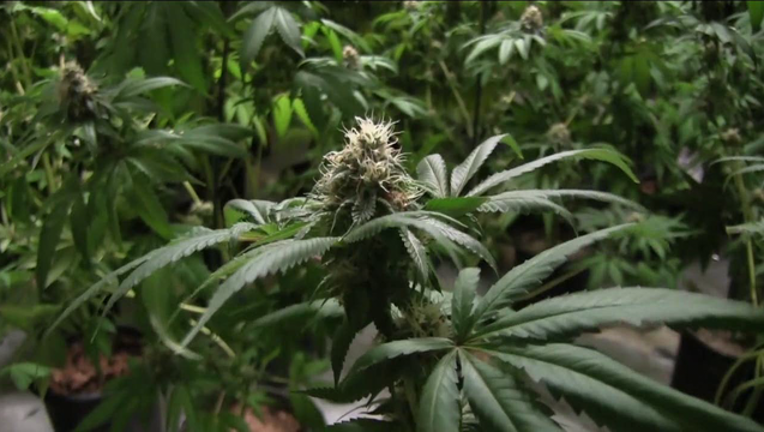Florida House demands marijuana law in high-stakes case

TALLAHASSEE, Fla. - In a Florida Supreme Court case with major ramifications for the medical marijuana industry, the Florida House contends a disputed 2017 law helps prevent “diversion” of pot to the illegal recreational market, minors, and other states.
House attorneys late Monday filed a friend-of-the-court brief urging the Supreme Court to overturn a July ruling by the 1st District Court of Appeal that said a key part of the law conflicted with a 2016 constitutional amendment that broadly legalized medical marijuana.
That key part of the law involves what is known as “vertical integration” --- a system in which a limited number of companies that receive medical marijuana licenses must handle all aspects of the cannabis trade, including growing, processing and distributing the products. The alternative to vertical integration would be to allow companies to play different roles, potentially leading to more players in the industry.
In the brief Monday, House attorneys pointed to the need for a secure medical-marijuana system that would prevent pot from being used recreationally.
It said the Legislature “determined that licensure was appropriate only for vertically integrated entities, enabling the state to hold a single entity accountable for each phase of the industry from cultivation to dispensation.”
“That approach combats product diversion from a legal medical market to the illegal recreational black market,” the House attorneys wrote. “States with diffuse licensure systems, low market barriers, and unlimited licenses provide a cautionary tale. Such states have a significant oversupply and persistent diversion and exportation of marijuana. The Legislature also required vertical integration to help curtail diversion to minors and diversion to other states where marijuana remains illegal or is regulated differently, which addresses the concerns the federal government expressed regarding the legalization of marijuana at the state level.”
Also filing a brief late Monday supporting the law were attorneys for several companies that already have medical-marijuana licenses. The brief said the decision by the 1st District Court of Appeal would cause a “seismic shift in Florida’s medical marijuana program.”
“In sum, the Florida Legislature created a vertically integrated medical marijuana program and established limits on the number of… licenses in an effort to ensure the availability and safe use of medical marijuana as required by the (constitutional) amendment,” the companies’ joint brief said. “These policy decisions are sound and consistent with medical marijuana programs in other states. By all indications, Florida’s program is growing successfully and appropriately.”
The arguments came in a long-running lawsuit filed by the Tampa-based firm Florigrown, which has tried unsuccessfully to get a medical marijuana license from the state. The Legislature passed the 2017 law to carry out the constitutional amendment.
A three-judge panel of the 1st District Court of Appeal in July upheld part of a temporary injunction issued by a Leon County circuit judge who found that the 2017 law conflicted with the constitutional amendment.
At least in part, the court focused on the difference in the words “or” and “and” in the definitions of medical-marijuana operators, which are known as medical marijuana treatment centers.
The constitutional amendment defined the centers as “an entity that acquires, cultivates, possesses, processes… transfers, transports, sells, distributes, dispenses, or administers marijuana, products containing marijuana, related supplies, or educational materials.”
Meanwhile, under the 2017 law, “a licensed medical marijuana treatment center shall cultivate, process, transport and dispense marijuana for medical use” --- wording that establishes the vertically integrated system of performing all aspects of the business.
“The power of the Legislature does not include rewriting clear language in the Constitution, transforming a disjunctive ‘or’ into a conjunctive ‘and,’ ” appeals-court Judge Scott Makar wrote in a subsequent decision in which the court declined to revisit the decision.
“No evidence exists that the people via the elemental language of the medical marijuana amendment clearly intended a market limited to only a few fully vertically-integrated medical marijuana companies,” he wrote.
The Florida Department of Health, which administers the medical-marijuana system, appealed to the Supreme Court. Justices said in October they would hear the case, though they have not scheduled a date for oral arguments.
Florigrown is not required to file a brief until early next month, but CEO Adam Elend said in July that the 1st District Court of Appeal decision was a “game-changer” and described the current system as an “oligopoly.”
“It drops a bomb on the current licensing scheme. It’s just changing the whole regime,” Elend said.

